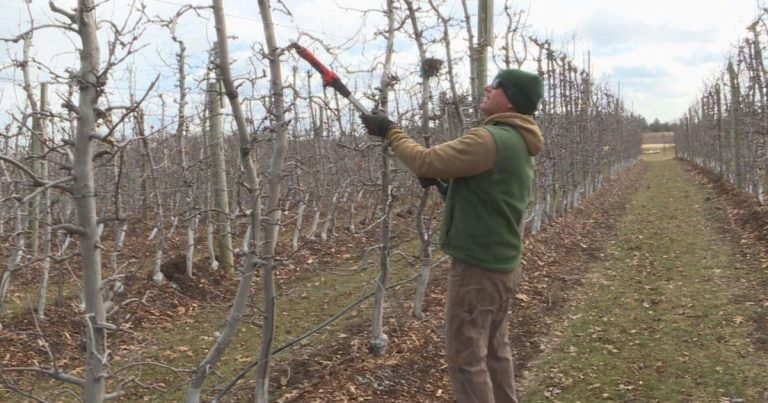NORTHBORO — As temperatures continue to fluctuate, Massachusetts farmers say they're worried about what's next.
Since 1981, Tougas Family Farm in Northboro has grown fruit for neighbors in Massachusetts.
“Strawberries, raspberries, sweet and sour cherries, peaches and nectarines,” Andre Togas said. He said another busy season was on its way, and he was pruning his peach and apple trees in preparation. “The main goal of pruning is to stimulate the tree to make new wood.”
The entire crop was gone
But for the next two months, he will be holding his breath after last season's crop died due to bad weather.
“One night the temperature dropped from 54 to -14 degrees and that was enough,” Togas said. “If it's very warm and it's followed by a real drop in temperature, then you can have problems. There's only one dose a season for the crop.”
The farm lost more than $100,000, damage they hope to avoid this year but is beyond their control.
“We live and die by the weather,” Togas said.
The Massachusetts agricultural industry is concerned that bad weather could mean trouble for the season. According to the WBZ Next Weather team, this winter will likely end in the top 10 warmest winters on record, with February ending with temperatures three to four degrees above average. In fact, just this week, temperatures reached the 50s.
But here's the problem: after less than 24 hours of mild weather, temperatures dropped into the 20s, and it even snowed in some places.
“It makes you wonder what the immediate future will be like,” said Warren Shaw, president of the Massachusetts Farm Bureau.
The impact is far-reaching
“Although the people most affected are the people on the farm who have lost their crops and their livelihood, they are not bringing the crop to market,” Shaw said. “They talk about food insecurity and some of it is caused by the weather.”
Shaw, a dairy farmer, was pitching to the Massachusetts legislature to support farmers. But the industry still loses millions every year, putting businesses and families at risk.
“We'll all be happy with consistency in part of the weather,” Shaw said. The solution, he said, is to visit local farms during the peak season for fresh food and some fun.

